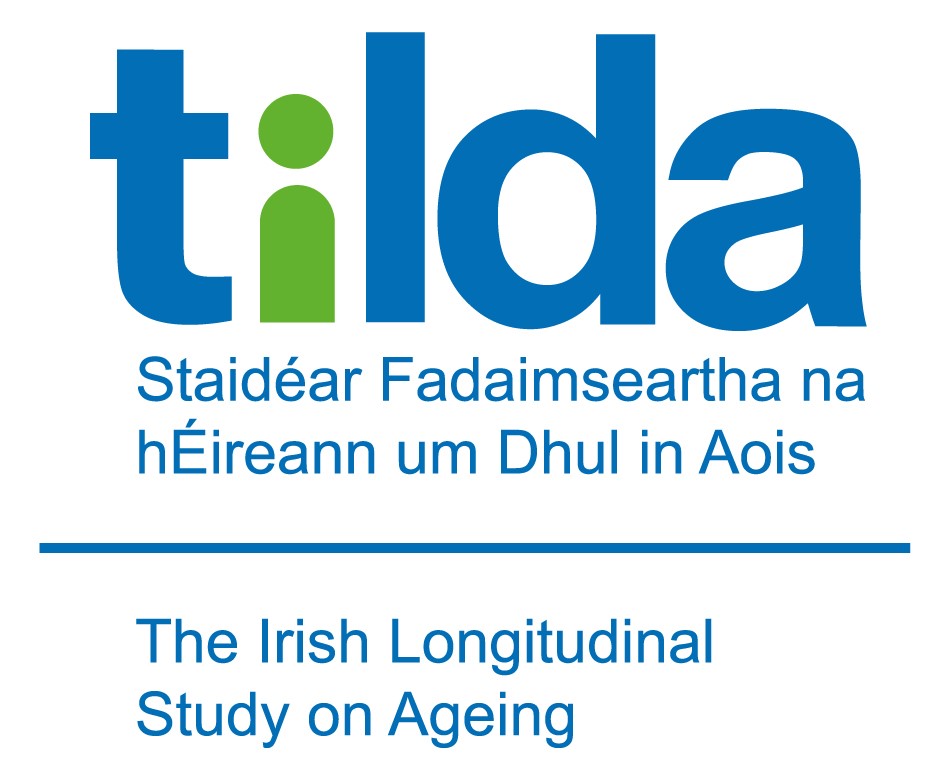Why Research Matters: TILDA and the response to COVID-19 in Ireland
 The TILDA dataset represents an unparalleled resource for understanding the health, social and economic situation of the older population in Ireland, among which are some of the most vulnerable in this crisis. TILDA researchers have been redeployed to expedite analysis of its Wave 5 data (2018) to provide national estimates of the prevalence of factors relevant to response planning, including: those living alone; those who are frail or pre-frail; the prevalence of a variety of chronic conditions and disabilities; the numbers taking different types of medications; the numbers providing essential family care to a relative; and healthcare utilisation including home help and other HSE services. See TILDA Report to Inform Demographics for Over 50s in Ireland for COVID-19 Crisis
The TILDA dataset represents an unparalleled resource for understanding the health, social and economic situation of the older population in Ireland, among which are some of the most vulnerable in this crisis. TILDA researchers have been redeployed to expedite analysis of its Wave 5 data (2018) to provide national estimates of the prevalence of factors relevant to response planning, including: those living alone; those who are frail or pre-frail; the prevalence of a variety of chronic conditions and disabilities; the numbers taking different types of medications; the numbers providing essential family care to a relative; and healthcare utilisation including home help and other HSE services. See TILDA Report to Inform Demographics for Over 50s in Ireland for COVID-19 Crisis
The findings relating to prevalence of chronic conditions and medication usage among over-50s was covered in the Irish Times.
In addition to this national picture, further analyses of county-level data have been performed to assist in the planning and delivery of regional healthcare services. A suite of three linked reports was released on 8th April, covering:
From emerging international data on COVID-19 deaths, TILDA has profiled those most at-risk of death according to age, medication status or underlying health condition. From this available evidence, we have profiled the prevalence of individuals in at-risk categories in the Irish population, based on chronic condition, multimorbidity and medication usage.
As new data and guidelines emerge from our international colleagues, we have rapidly and pre-emptively applied the relevant analysis to our Irish data. The National Institute for Health in Care Excellence (NICE) in the UK has published rapid COVID-19 guidelines for the management of patients in critical care, stating that all patients on admission to hospital irrespective of COVID-19 status, should continue to be assessed for frailty using the Clinical Frailty Scale (CFS). Patients scoring 5 or more on this nine-point CFS will be put through a process where doctors must consider if critical care is considered appropriate before proceeding. The TILDA team has applied the CFS to TILDA data and report on prevalence and numbers of individuals in Ireland aged 55+ and 70+ who have a CFS score of 5 or more by sex, county, proportion living alone and those in receipt of formal or informal care services.
This report looks at the prevalence of the use of a range of acute and community care and support services among the over-50s and the over-70s, showing which are most commonly used nationally and by county, and noting the implications for planning and delivery of services in Ireland during the COVID-19 pandemic.
Our report, The Contributions of the Over 70s to Irish Society: Results from Wave 5 of the Irish Longitudinal Study on Ageing, shows the enormous contribution of the over-70s to family, social, and economic life in Ireland. It is a timely rejoinder to negative and stereotypical narratives entering some media coverage of the pandemic, which depicts the measures taken to protect older adults as burdensome for society, and threatens to reduce the over-70s in the public imagination to “vulnerable”. The TILDA data demonstrate the huge contribution the over-70s cohort makes to informal care, volunteering, social engagement and economic activity.
Another report,Vitamin D deficiency in Ireland – implications for COVID-19. Results from the Irish Longitudinal Study on Ageing uses TILDA data to estimate the prevalence of vitamin D deficiency among the Irish population over 55 and over 70; notes the clinically-documented role of vitamin D in fighting respiratory tract infections, a feature of COVID-19; looks at the implications for those advised to “cocoon” in this period; and details the recommended daily intake and common sources of vitamin D.
Kerry Group Health and Nutrition Institute was further granted permission to feature the report’s infographic with key findings on its website. It has also prompted invitations to academic collaboration on the issue of Vitamin D and COVID-19 from the UK and US. Currently, an academic paper mapping the prevalence of vitamin D deficiency in Europe and comparing the data with COVID-19 severity and mortality is in preparation.
These and future related reports will be available on the TILDA website, and made directly available to senior health services planners, with whom Professor Rose Anne Kenny, TILDA’s Principal Investigator, is in ongoing contact. The reports are also promoted among the national and international research community in support of the press release on “Sharing research data and findings relevant to the novel coronavirus (COVID-19) outbreak”, to which the Health Research Board is a signatory.
TILDA has prepared and published an information sheet on new and expanded national services offered by community and voluntary sector organisations in response to the COVID-19 crisis, especially those helpful for self-isolating or following the advice to “Stay safe, stay home”; while Professor Kenny featured as part of a panel of experts offering advice to the over-70s “cocooning” on Newstalk’s “Between the Lines” on Saturday 4th April.
As our findings emerge, we communicate them, along with other public information on the crisis and emerging data from reliable sources, through our Twitter platform, and encourage all of our followers and wider public to respond to this evolving crisis in a measured, informed manner which is considerate of the needs of the most vulnerable in our society.

